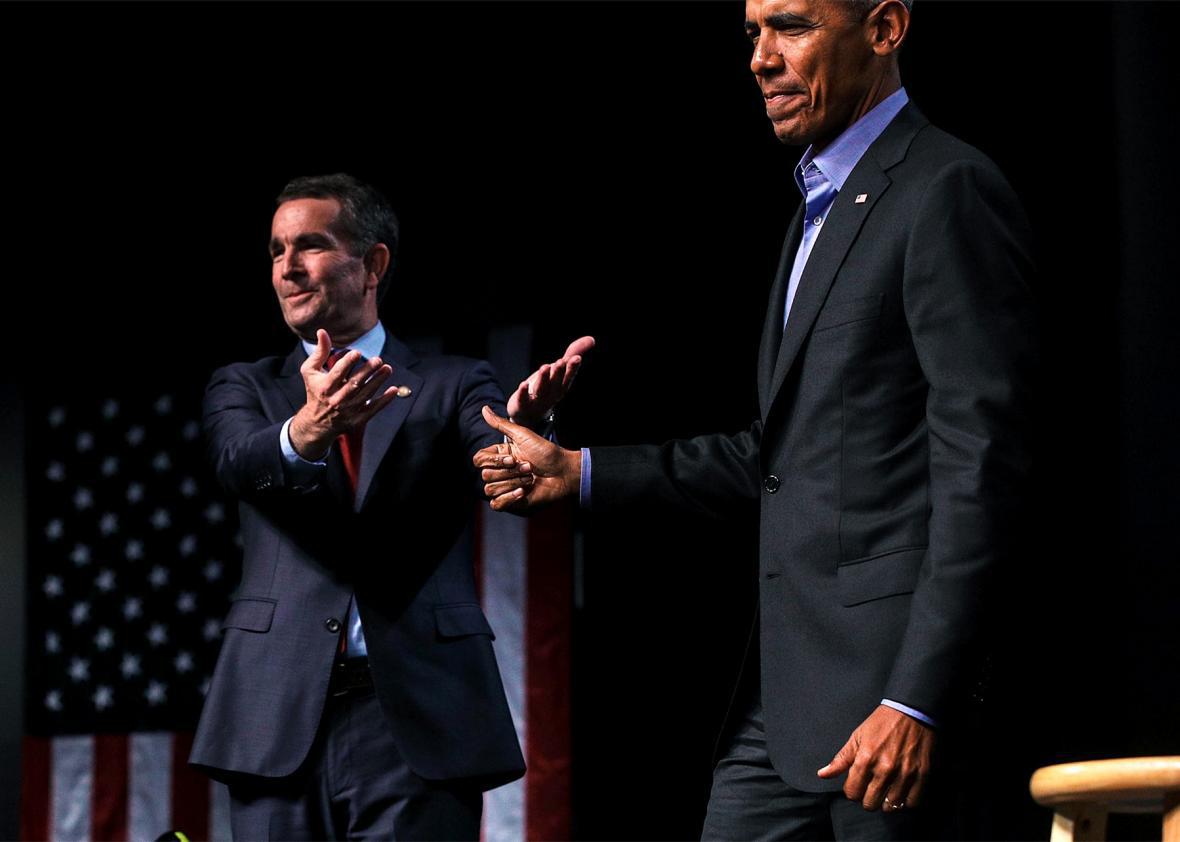Ralph Northam ran on Medicaid. “We need to expand Medicaid in the commonwealth of Virginia,” the Democratic gubernatorial candidate said at a major rally in Richmond just a few weeks before the election. “Right now there are 400,000 working Virginians that don’t have access to health care. That is immoral.”
In his first interview since the election, Ralph Northam says he won’t take that step. “I have let our people know that I will work with the legislature that was elected by the people,” he said in an interview with the Washington Post. “I’m not approaching anybody … in the Senate or the House.” The Post notes that “Northam said he has no plans to try to force Republicans to accept a broad expansion of Medicaid.”
It’s true that Northam won’t enter office with Democratic majorities in the General Assembly. But he’ll be close. Democrats swept state legislative elections in a surprising wave that, after several recounts—including one race determined by a single vote—gave them 50 seats in the 100-member House of Delegates.* Along with Republicans’ razor-thin minority in the state Senate—19 seats in a 40-member chamber—Democrats are a hair’s breadth away from the votes they need to expand Medicaid. Bringing a few Republicans into the Northam administration, or convincing one or two of the most vulnerable GOP members to switch sides, would open the floor to expanding the health care program.
Northam, who himself switched parties before entering electoral politics and was later courted to switch back by Republicans, is clearly committed to an Obama-esque vision of civility and compromise. But before heading down that road, the incoming governor should remember one of the lessons of Obama’s presidency: Voters may say they like bipartisanship, but they don’t actually vote for it.
Despite an electorate that clearly wanted Democrats to take the lead, Northam is preaching bipartisanship in Richmond. His advice to freshman Democratic lawmakers? “Learn the system, number one. And really make good relationships on both sides of the aisle. … I’ll try to lead that. We talk about the doctor being in, healing, and I’ll try to bring people together and emphasize doing what’s in the best interest of Virginia.”
We’ve seen this logic before. In the first year of his presidency, Barack Obama tried to find common ground with the GOP on issues of presumably mutual concern. He brought Republicans into his Cabinet, extending offers to Robert Gates, former Rep. Ray LaHood of Illinois, and Sen. Judd Gregg of New Hampshire. A week after his inauguration, Obama met with congressional Republicans, seeking support for his stimulus plan and offering concessions on several items. And far from jamming health care through Congress, the White House deferred to a bipartisan “Gang of Six” led by Sen. Max Baucus of Montana. By the end of his first 100 days in office, most Americans—66 percent according to Gallup—believed Obama was making a sincere effort to find common ground with the Republican Party, fulfilling a key campaign promise.
But while the public likes bipartisanship, it doesn’t reward it. Obama’s overtures didn’t insulate him or his Democratic allies from a growing sense of discontent and a landslide that would obliterate the party’s majority in the House of Representatives. What voters typically reward is performance, and the administration’s zeal for compromise on stimulus and health care produced measures that weren’t large enough or generous enough to give voters a sense of security in the wake of a disastrous recession.
Compromise is part of governance, but given the yawning ideological gap between Republicans and Democrats, there is real tension between pursuing that bipartisanship and building legislation that works. During Obama’s presidency, the pressures of partisanship and ideology meant Republicans were never going to support an expansive health insurance program. Still, Democrats built their program around the possibility of bipartisan support, yielding a law with real weaknesses.
Ralph Northam clearly values compromise and bipartisanship, but he runs a risk in elevating them over his unambiguous promise to expand Medicaid. Northam won’t have to stand for re-election—the governor of Virginia can’t serve consecutive terms—but the energy that elevated state Democrats and delivered a shocking victory in the House of Delegates can dissipate as easily as it emerged. Indeed, in the wake of his interview with the Post, Northam was hit with a social media backlash, excoriating him for backing away from his Medicaid pledge.
If Obama’s experience doesn’t weigh on Northam, that backlash should. If Northam can lead Virginia to fully implement the Affordable Care Act, there’s a decent chance voters will remember in two years and vote accordingly. They won’t remember, and won’t care, if he reaches out to Republicans to craft a half-measure that doesn’t address the problem.
*Correction, Dec. 20, 2017: This article originally misstated Lt. Gov. Justin Fairfax holds a tie-breaking vote in the Virginia House of Delegates. There is no official tie-breaking mechanism in the House of Delegates. (Return.)
